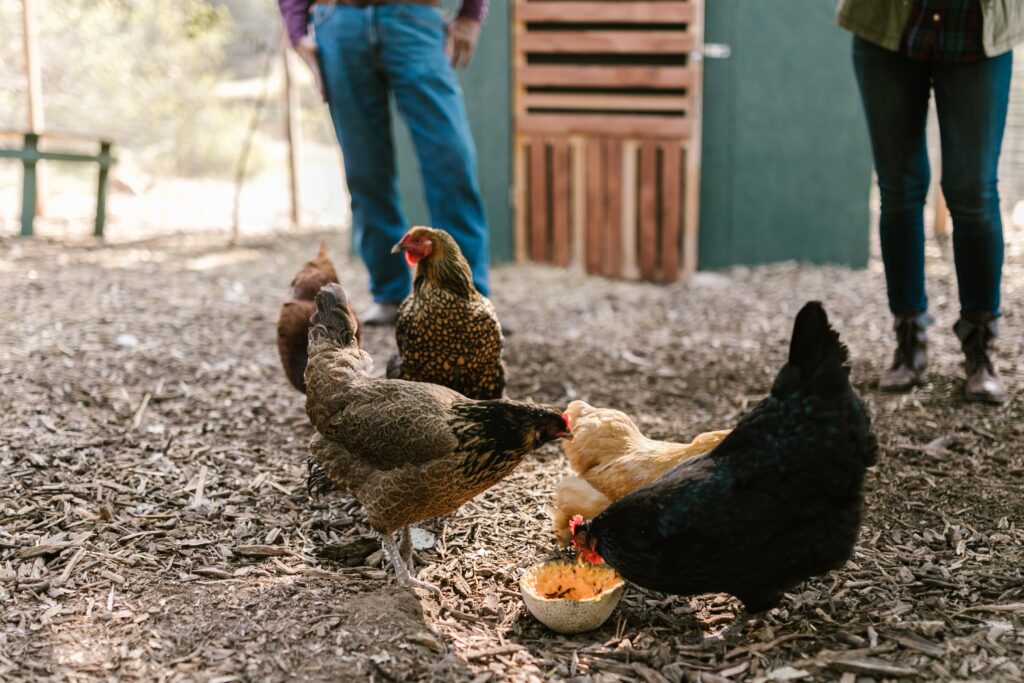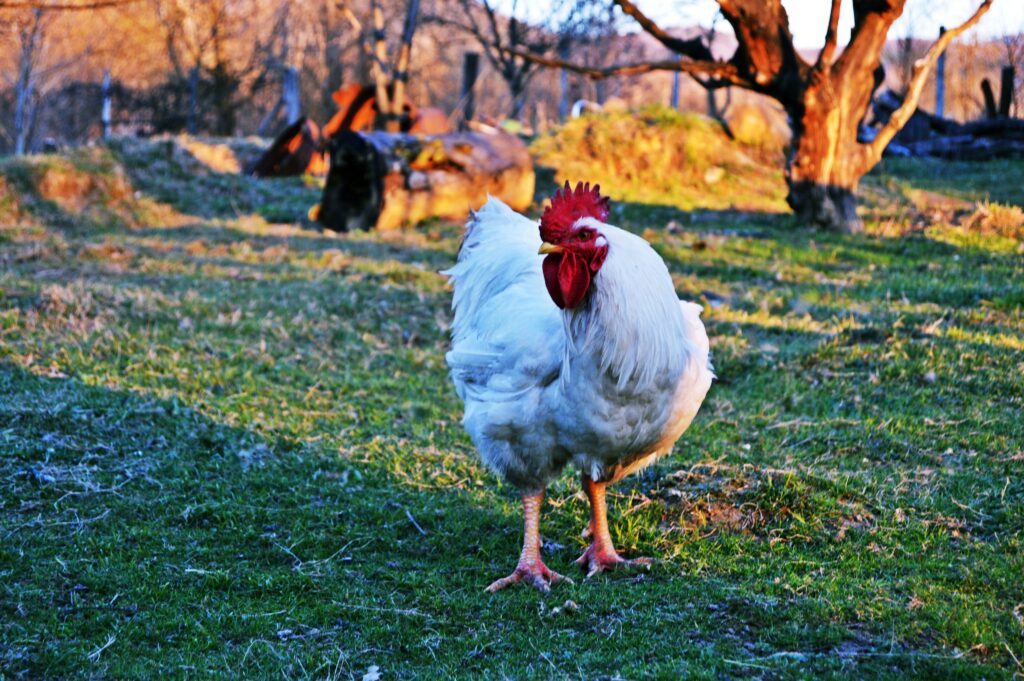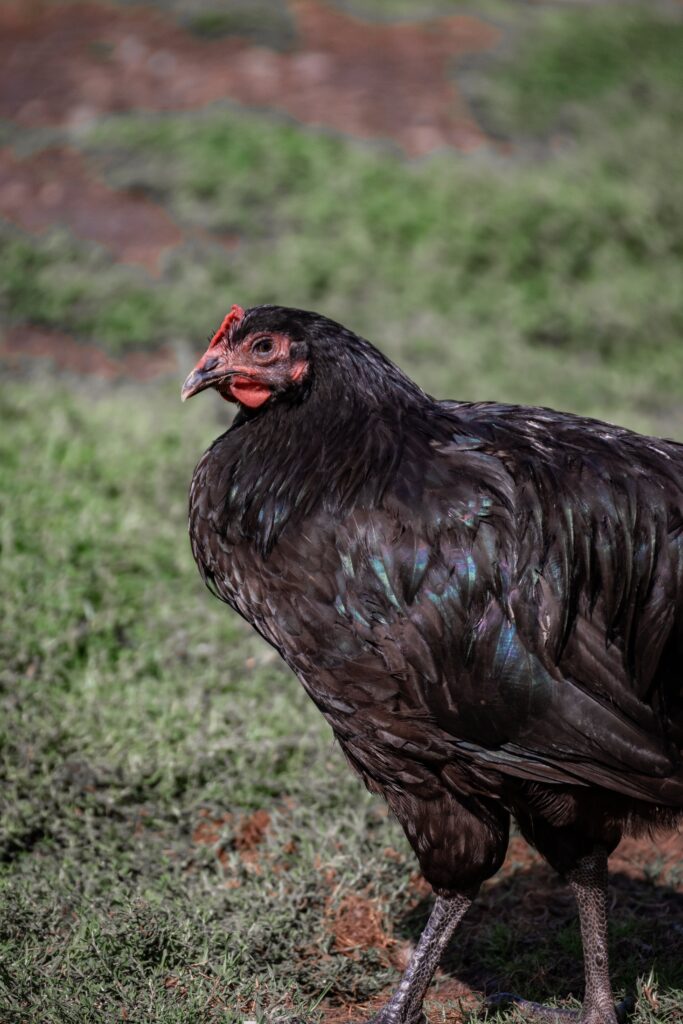Best Egg Laying Backyard Chicken Breeds: Guide for Beginners
A Beginner’s Guide to Hardy and Productive Backyard Chicken Breeds for Egg Production
Welcome to the exciting world of backyard chicken-keeping! If you are new to the world of backyard chickens this guide is meant to help you choose the best chicken breeds for egg production. Choosing the right chicken breeds is crucial for a successful and enjoyable experience in your first year. In this guide, we’ll explore the best chickens for eggs, with a focus on beginner-friendly, hardy, and prolific egg layers. Plus, we’ll throw in a bonus tip for those with limited space – the wonderful world of quail.
Embarking on the journey of raising backyard chickens is not just a leap toward sustainable living; it’s fun! Plus it comes with the promise of fresh, flavorful eggs. As more people start to embrace the idea of cultivating their food, the choice of chicken breeds becomes a pivotal consideration.

In this comprehensive guide, we will delve into the realm of poultry, exploring the nuances of chicken breeds that stand out as the “best chickens for eggs.” Whether you’re a seasoned enthusiast or a novice contemplating the vibrant world of backyard flocks, understanding the diverse variety of chicken breeds is crucial.
Imagine waking up to a kaleidoscope of eggs nestled in your coop—each one a unique work of art. From the striking blue eggs and green eggs to the subtle browns, and beautiful speckles, the palette of egg color can be as diverse as the breeds that lay them. A great backyard flock can be comprised of laying hens of different varieties, so you have a flock of beautiful birds all laying different colored beautiful eggs.
In this article, we will discuss the best egg-laying champion breed while also guiding beginners through the process of selecting breeds that harmonize with their skill level and aspirations. So, let’s venture into the world of poultry, and get to know what makes keeping chickens one of the most rewarding experiences my family has ever known!
Best Breeds For Egg Production
1. Rhode Island Red:
Rhode Island Red chickens are known for their friendly disposition and exceptional egg-laying abilities. They are a fantastic option for beginners because they are prolific egg layers. These hardy birds adapt well to various climates, making them an excellent choice for first-time chicken owners.
2. Plymouth Rock (Barred Rock):
The Plymouth Rock, often called the Barred Rock, is not only a picturesque addition to your flock but also a reliable egg producer. These sociable birds are known for their cold hardiness, making them suitable for regions with chilly winters. They are a breed to consider if you worry about cold weather and long winter months.
3. Sussex:
If you’re looking for a breed that combines friendliness with excellent egg production, Sussex chickens fit the bill. With a gentle temperament and a knack for laying consistently, Sussex chickens make a delightful addition to any backyard.
4. Australorp:
Hold your clucks for the record-holder! The Australorp set an egg-laying world record – 364 eggs in 365 days. Friendly and hardworking, these chickens are perfect for those aiming to have a steady supply of eggs. Black Australorps are also great dual-purpose chickens for both egg-laying and meat production.
5. Buff Orpington:
For a touch of charm and warmth in your flock, consider Buff Orpingtons. These fluffy, docile birds are known for their ability to withstand colder temperatures, making them a great choice for cold climates.
6. Golden Comet:
If you’re looking for early egg production, Golden Comets are the golden ticket. Golden Comets are sometimes also labeled as Red Stars depending on the hatchery. These hybrid layers are known for their friendly demeanor and impressive egg-laying capabilities, starting at a young age. They lay large dark brown eggs. They are also good in cold temperatures.

7. White Leghorns:
For those wanting white eggs, Leghorns are the go-to breed. These active and alert chickens are excellent layers, and their white eggs add a touch of variety to your egg basket.
8. ISA Brown:
ISA Browns are a hybrid breed specifically bred for optimal egg production. These friendly and adaptable birds are perfect for beginners seeking a reliable source of brown eggs.
9. Wyandotte:
With their beautiful, laced plumage, Wyandottes are a dual-purpose breed known for both meat and egg production. Their cold-hardy nature makes them a favorite in regions with harsh winters.
10. Easter Egger:
Add a splash of color to your egg basket with Easter Eggers. These friendly and curious chickens lay eggs in various shades of blue and green, making them a popular choice for those seeking something unique.
11. Orpington:
In addition to the Buff Orpington, other color varieties of Orpingtons, such as Black and Blue, are equally charming and hardy. These gentle giants make great pets while consistently delivering eggs.
12. New Hampshire Red:
Cousin to the Rhode Island Red, the New Hampshire Red shares its friendly demeanor and excellent egg-laying abilities. These birds are well-suited for beginners seeking a reliable source of brown eggs.
13. Speckled Sussex:
If you want a visually striking addition to your flock, consider Speckled Sussex. Beyond their captivating appearance, these chickens are known for their friendly nature and consistent egg production.
14. Delaware:
Delawares are a dual-purpose breed known for their friendly temperament and reliable egg production. Their elegant black-and-white plumage adds a touch of sophistication to your flock.
From my own experience:
The three chicken breeds we have chosen to keep in our flock are Black Austrolorp, Barred Rock, and Easter Eggers. One breed we have chosen not to continue to keep is ISA Browns. We really liked our ISA Brown chickens, they tolerated all the handling from our children and they never really went broody but they did die pretty early and it seems to be because they were bred for production. We also found they were pretty bossy and plucked feathers frequently despite all our efforts to stop it.
I still think that ISA browns are an excellent choice if you have a chicken coop that you need to fill and you need prolific layers. They are some of the best layers we have ever had and they are a popular breed. My children just could not handle the heartbreak of losing so many chickens so young. They were the breed we chose as first time chicken owners without knowing the health issues. They were a good fit at the time. They were excellent free-range birds and met the needs of our small farm. If you have young children, you might want to consider this and so I wanted to address it.
The Barred Rocks are super friendly, produce wonderful large brown eggs and they enjoy the company of my children. Our Black Austrolorp are very similar, except they produce a little more frequently and their eggs are the largest of all the eggs we collect. The Easter Eggers are fun for the colors we get and they produce regularly even at 4 years old. They are friendly but their eggs are the smallest of all of them. We keep these girls for their temperament and the colorful eggs.
If I could only keep one breed of chicken it would hands down be the Black Austrolorp. They are cold hardy, healthy, dual purpose birds. They are record-holding in the world of egg production and the eggs they lay are large beautiful brown-speckled eggs. They are also friendly, my children can pick them up and pet them. They do occasionally go broody but it is not a regular issue for us. In fact, they are excellent mothers if you plan to breed your chickens. They also do really well in the free range department.
Bonus Tip: Quail for Limited Space:
For those with limited space, quail is a fantastic alternative. These small birds require less room and can be kept in urban settings. Quail eggs are also a delicacy with a unique flavor, offering a different culinary experience for backyard poultry enthusiasts. They are also an excellent choice as a dual purpose breed for a small farm.
Maintaining a consistent egg production
Maintaining a consistent egg production from your chickens requires a combination of proper care, attention to their environment, and a dash of chicken-friendly TLC. Here are some key tips to keep those eggs rolling in:
Quality Nutrition:
Just like people, chickens need a balanced and nutritious diet to lay high-quality eggs. Ensure they have access to a premium layer feed that’s rich in essential nutrients, including calcium for strong eggshells. Supplement their diet with fresh greens, grains, and occasional treats to keep them healthy and happy.
Clean Water:
Water is a crucial element in egg production. Make sure your chickens have access to clean and fresh water at all times. Dehydration can affect egg quality and quantity, so check water sources regularly, especially during hot weather.
Comfortable Coop and Nesting Boxes:
A cozy and well-maintained coop is essential for happy and productive layers. Provide ample nesting boxes filled with clean straw or bedding to create a comfortable environment for your hens to lay eggs. Keep the coop dry and well-ventilated to prevent stress and ensure optimal laying conditions.
Regular Egg Collection:
Frequent egg collection not only ensures that you gather the eggs before they get damaged or soiled but also encourages your hens to continue laying. Make it a daily routine to collect eggs, and be gentle to avoid stressing the chickens during the process.
Lighting:
Chickens’ egg-laying cycles are influenced by light. Ensure your coop has sufficient lighting, especially during the darker months, to simulate longer days. Artificial lighting can be used to extend daylight hours, encouraging consistent egg production throughout the year. Personally, I don’t use artificial lighting because I think that it’s important to let my chickens have that rest period as it was naturally designed.
Health Monitoring:
Regular health check-ups are vital for a productive flock. Keep an eye out for signs of illness, and promptly address any health concerns. Healthy chickens are more likely to lay consistently and produce quality eggs.
Space and Social Dynamics:
Overcrowding and social stress can negatively impact egg production. Provide enough space for your chickens to move freely, and monitor their interactions. Address any signs of aggression or bullying to maintain a harmonious flock. Provide methods of keeping them from getting bored; scratch grains, heads of cabbage, flock block, and foraging trays or boxes are just some options to consider.
Seasonal Adjustments:
Recognize that egg production may fluctuate with the seasons. During colder months, some breeds may naturally slow down laying. Molting also occurs seasonally. Adjust your care routine accordingly and be patient, as many hens resume regular laying as the weather warms up.

Selecting the best chickens for eggs is an exciting step toward creating your own backyard haven of fresh, delicious eggs. Whether you prefer friendly, cold-hardy, or uniquely colored egg layers, there’s a perfect breed for every aspiring poultry keeper.
As you embark on this egg-citing journey, remember that each chicken is unique, so enjoy the process of getting to know your feathered friends and the joy they bring to your daily life. I know they bring a ton of joy to my family!
Finally, by implementing the practices outlined in the second half of the article, you’ll create an environment that encourages your chickens to lay eggs regularly and maintain a healthy, happy flock. Remember, a little love and attention go a long way in ensuring a steady supply of fresh eggs from your feathered friends.
